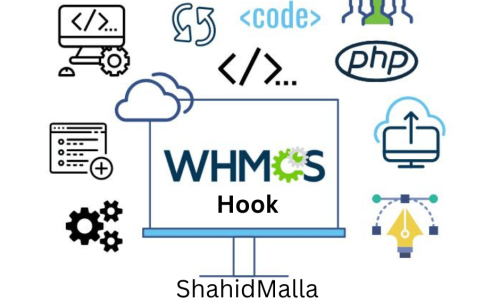How To Write Hook In WHMCS?

In WHMCS, a hook is a custom code that allows you to modify or extend the functionality of the software. Hooks are implemented using PHP and are placed in specific locations within the WHMCS codebase, allowing you to execute your custom code at specific points in the software’s execution.
To write a hook in WHMCS, you will need to follow these steps:
- Determine where you want to execute your custom code: WHMCS provides a number of different hooks that you can use to execute your code at various points in the software’s execution. You will need to determine which hook is the most appropriate for your needs based on the specific action you want to take.
- Create a PHP file for your hook: Once you have determined which hook to use, you will need to create a PHP file that contains your custom code. This file should be placed in the
/includes/hooks/directory of your WHMCS installation. - Register your hook: In order for your hook to be executed, you will need to register it with WHMCS. To do this, you will need to add a line to the
/includes/hooks/hooks.phpfile that specifies the name of your hook and the PHP file that contains your custom code. - Write your custom code: In your PHP file, you can write your custom code using standard PHP syntax. This code will be executed whenever the specified hook is triggered.
Here is an example of a simple hook that logs a message to the WHMCS system log when a client logs in:
Copy code<?php use WHMCSDatabaseCapsule; add_hook('ClientLogin', 1, function($vars) { $clientId = $vars['userid']; $clientName = $vars['firstname'] . " " . $vars['lastname']; logActivity("Client logged in: ID - " . $clientId . " | Name - " . $clientName); });
In this example, the hook is registered with the add_hook function, which specifies the name of the hook (“ClientLogin”) and the PHP file that contains the custom code. The hook function itself simply logs a message to the system log using the logActivity function, which is provided by WHMCS.
To use this hook, you would simply place the PHP file in the /includes/hooks/ directory of your WHMCS installation and add the registration line to the hooks.php file. The hook function would then be executed whenever a client logs in to the WHMCS system.
I hope this helps! Let me know if you have any further questions.

